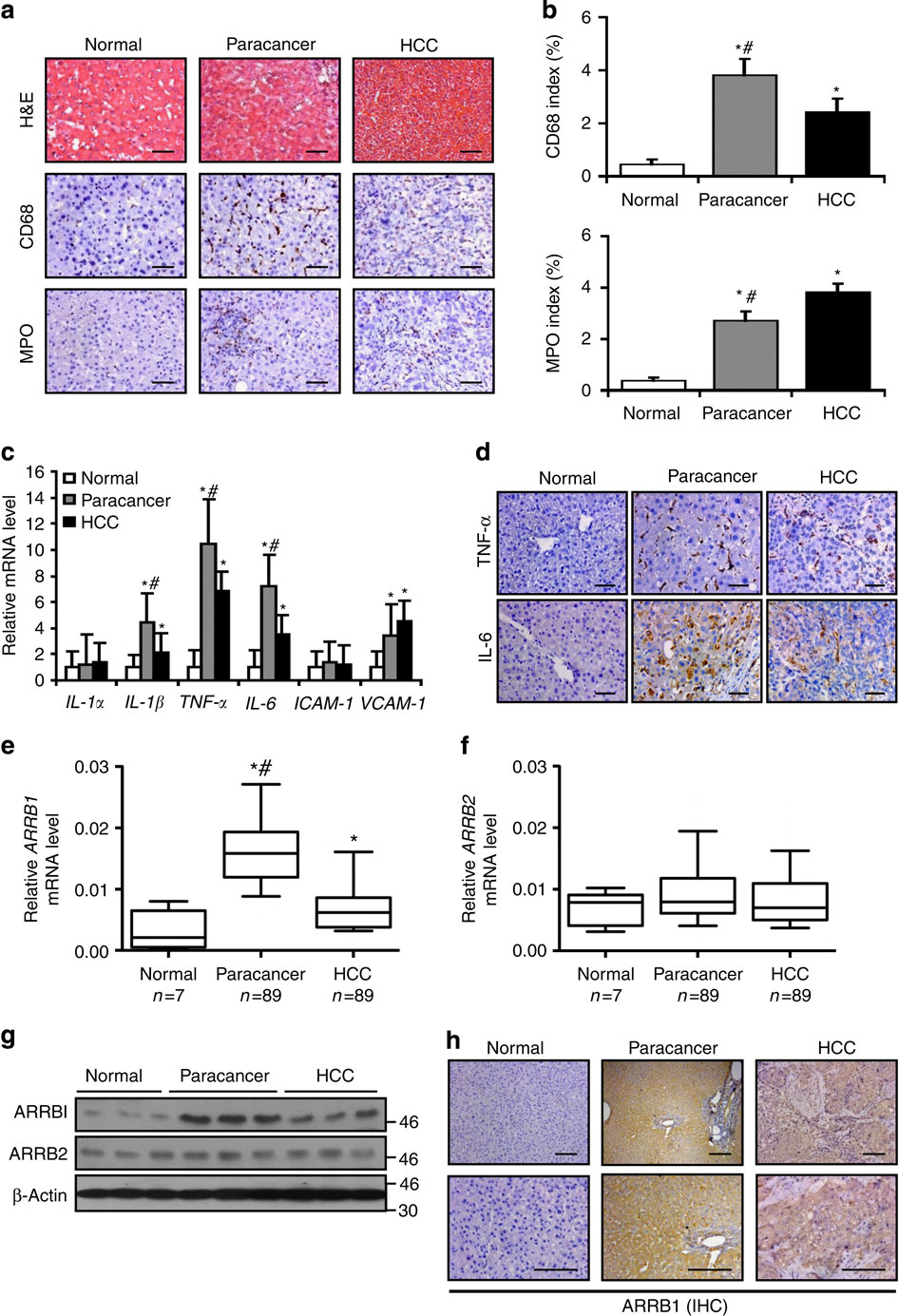当前位置:
X-MOL 学术
›
Nat. Commun.
›
论文详情
Our official English website, www.x-mol.net, welcomes your
feedback! (Note: you will need to create a separate account there.)
β-Arrestin1 enhances hepatocellular carcinogenesis through inflammation-mediated Akt signalling.
Nature Communications ( IF 14.7 ) Pub Date : 2015-Jun-16 , DOI: 10.1038/ncomms8369 Yidong Yang , Yunwei Guo , Siwei Tan , Bilun Ke , Jin Tao , Huiling Liu , Jie Jiang , Jianning Chen , Guihua Chen , Bin Wu
Nature Communications ( IF 14.7 ) Pub Date : 2015-Jun-16 , DOI: 10.1038/ncomms8369 Yidong Yang , Yunwei Guo , Siwei Tan , Bilun Ke , Jin Tao , Huiling Liu , Jie Jiang , Jianning Chen , Guihua Chen , Bin Wu

|
G-protein-coupled receptors (GPCR) constitute the largest known superfamily for signal transduction and transmission, and they control a variety of physiological and pathological processes. GPCR adaptor β-arrestins (ARRBs) play a role in cancerous proliferation. However, the effect of ARRBs in inflammation-mediated hepatocellular carcinogenesis is unknown. Here we show that ARRB1, but not ARRB2, is upregulated in inflammation-associated hepatocellular carcinoma (HCC) and paracancerous tissues in humans. A genotoxic carcinogen, diethylnitrosamine (DEN), significantly induces hepatic inflammation, TNF-α production and ARRB1 expression. Although ARRB1 deficiency does not affect hepatic inflammation and TNF-α production, it markedly represses hepatocellular carcinogenesis by suppressing malignant proliferation in DEN-treated mice. Furthermore, TNF-α directly induces hepatic ARRB1 expression and enhances ARRB1 interaction with Akt by binding to boost Akt phosphorylation, resulting in malignant proliferation of liver cells. Our data suggest that ARRB1 enhances hepatocellular carcinogenesis by inflammation-mediated Akt signalling and that ARRB1 may be a potential therapeutic target for HCC.
中文翻译:

β-Arrestin1通过炎症介导的Akt信号传导增强肝细胞癌变。
G蛋白偶联受体(GPCR)构成了已知的最大的信号转导和传递超家族,它们控制着各种生理和病理过程。GPCR衔接子β-arrestin(ARRB)在癌性增殖中起作用。但是,ARRB在炎症介导的肝细胞癌变中的作用尚不清楚。在这里,我们显示在人类与炎症相关的肝细胞癌(HCC)和癌旁组织中,ARRB1(而非ARRB2)被上调。遗传毒性致癌物二乙基亚硝胺(DEN)会显着诱导肝脏炎症,TNF-α的产生和ARRB1的表达。尽管ARRB1缺乏症不会影响肝脏炎症和TNF-α的产生,但它通过抑制DEN治疗的小鼠的恶性增殖而明显抑制了肝细胞癌变。此外,TNF-α通过结合增强Akt磷酸化而直接诱导肝ARRB1表达并增强ARRB1与Akt的相互作用,从而导致肝细胞恶性增殖。我们的数据表明,ARRB1通过炎症介导的Akt信号传导增强肝细胞癌变,并且ARRB1可能是HCC的潜在治疗靶标。
更新日期:2015-06-17
中文翻译:

β-Arrestin1通过炎症介导的Akt信号传导增强肝细胞癌变。
G蛋白偶联受体(GPCR)构成了已知的最大的信号转导和传递超家族,它们控制着各种生理和病理过程。GPCR衔接子β-arrestin(ARRB)在癌性增殖中起作用。但是,ARRB在炎症介导的肝细胞癌变中的作用尚不清楚。在这里,我们显示在人类与炎症相关的肝细胞癌(HCC)和癌旁组织中,ARRB1(而非ARRB2)被上调。遗传毒性致癌物二乙基亚硝胺(DEN)会显着诱导肝脏炎症,TNF-α的产生和ARRB1的表达。尽管ARRB1缺乏症不会影响肝脏炎症和TNF-α的产生,但它通过抑制DEN治疗的小鼠的恶性增殖而明显抑制了肝细胞癌变。此外,TNF-α通过结合增强Akt磷酸化而直接诱导肝ARRB1表达并增强ARRB1与Akt的相互作用,从而导致肝细胞恶性增殖。我们的数据表明,ARRB1通过炎症介导的Akt信号传导增强肝细胞癌变,并且ARRB1可能是HCC的潜在治疗靶标。































 京公网安备 11010802027423号
京公网安备 11010802027423号